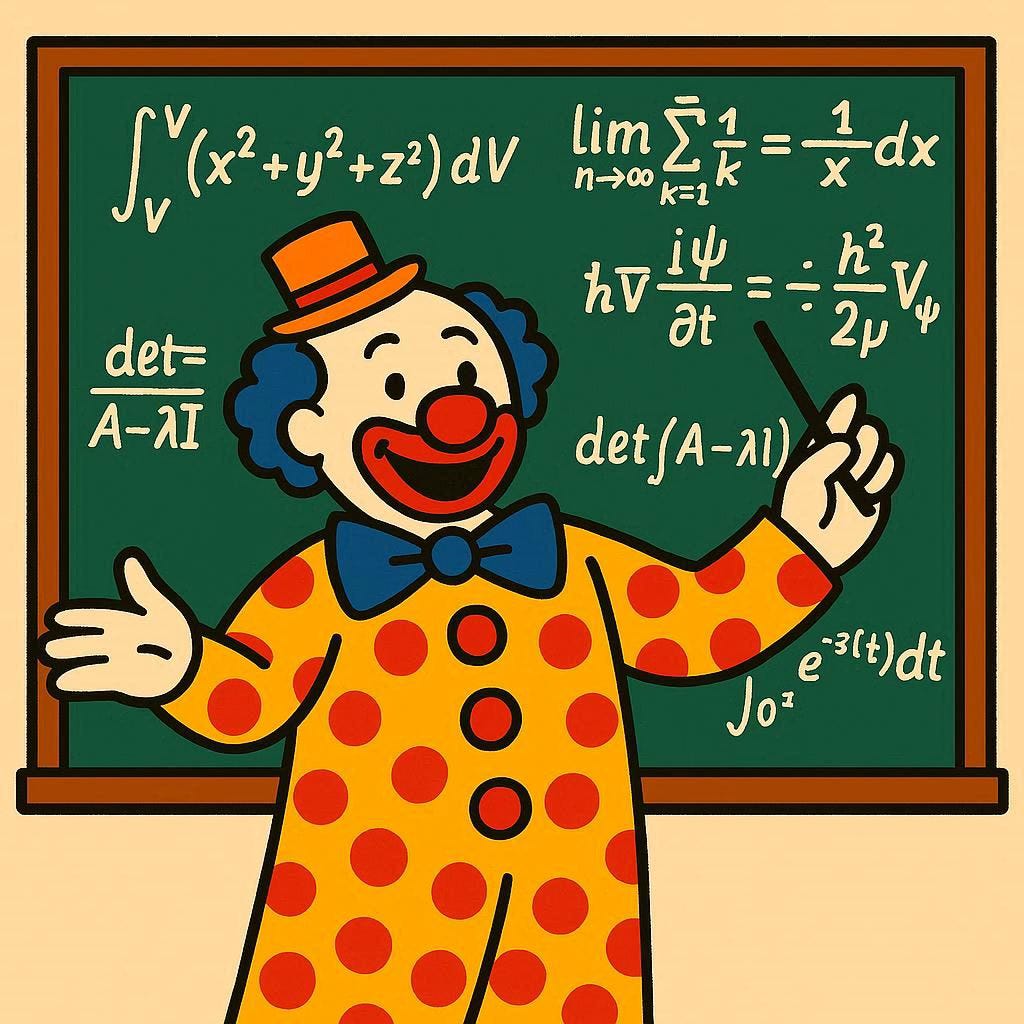The Problem With "Just Asking Questions"
Today's "non-experts" have a lot to say
Comedian Dave Smith is increasing in influence.
His appearances on Joe Rogan’s podcast helped a lot. The episode in which he debated Douglas Murray raised his profile significantly. Smith is a libertarian: sceptical of authority, allowing him to provide an alternative take on politics.
As a comedian, he is appreciated for his political insights. That seems somewhat counterintuitive.
His job title requires that he make people laugh, not shape modern discourse.
One of Smith’s recent podcast appearances was telling.
He debated Coleman Hughes, a journalist for The Free Press.
On the podcast, Smith was pressed on one of his arguments. He had once claimed that General Wesley Clark knew of “secret U.S. plans” to overthrow foreign governments. Hughes called it hearsay, lacking the evidence standards of your average historian.
Smith disagreed. In his words, he was not a historian, but just “a guy talking about these issues to the American people”, who could decide for themselves.
When met with resistance, Smith did not back up his argument with evidence; he dodged the responsibility for advancing it.
His debate with Douglas Murray highlighted a similar theme.
Debating the Israel-Gaza war, Murray insisted that people should listen to experts over amateurs (such as Smith). Smith argued (with some merit) that Murray should not make arguments from authority. In his view, Murray embodied the establishment, belittling the common man.
However, Murray never argued that the only people to be listened to are appointed experts. Instead, he pointed out that there is such a thing as expertise and that it is a waste of time to listen to someone who has not done their homework.
Smith’s scepticism towards institutions has value, but it falls flat when taken to its extreme.
Scrutinising all authority is self-defeating, for the following reason:
If you are a public speaker (or writer), you imply you know something worth hearing; otherwise, you would not ask anyone to listen. As you gain influence, you grow from author to authority. Dave Smith may rebel against authority, but his audience sees him as one.
By engaging in debate, you imply authority. If you deny all authority during a debate, you therefore contradict yourself.
But it does allow you to backpedal at any moment, by stating you are “just asking questions”.
Smith embodies the archetype of the noble fool.
He is a comedian, and should therefore be cut some slack.
It is the comedian’s role to shake things up with humour. They excel at helping their audience see things differently. This is why some of Smith’s colleagues (e.g., Dave Chappelle, Bill Burr, and Ricky Gervais) have huge cultural influences.
But once Smith enters the arena of public discourse, he is no longer just a comic. He is a commentator: accountable for the arguments he advances.
A commentator should not just “joke” or “ask questions” but offer insights that are of value to their audience.
When he fails to, but still demands the audience's attention, he tricks them into listening.
This relates to the archetype of the trickster: a close (but sketchy) relative of the fool. The fool expands consciousness by challenging preconceptions and widening perspectives. The trickster hijacks consciousness by constantly questioning everything.
He only causes more confusion. The fool makes you think, but the trickster only makes you think of himself.
He captures attention for its own sake, even if he provides nothing worth paying attention to.
Smith balances back and forth between the fool and the trickster.
His rebellious qualities are both helpful and unhelpful.
When he refuses to substantiate claims, he leaves his audience with no answers and more questions. Although he may offer necessary rebellion against outdated arguments from authority, he also provides skepticism without solutions. The latter only causes more confusion.
But Smith is by far not the only commentator guilty thereof.
An example of someone who fully embodied the trickster archetype was Milo Yiannopoulos: a right-wing provocateur. Milo also poked fun at authority, which allowed him to pose as an underdog. In reality, he had a massive audience.
In his hubris, Milo went too far by trivializing pedophilia on podcasts. Soon after, he was canceled, illustrating how quickly tricksters rise and fall.
Tricksters often fall victim to the chaos they create.
They thrive (and crumble) in times of instability.
When chaos ensues, people stop trusting institutional narratives, but they still need new ones. Questions invite answers, but not always of the best quality. The trickster exploits this demand by supplying poor-quality solutions.
He operates like a huckster peddling miracle cures during an epidemic.
But the trickster’s methods are unsustainable.
To speak is to claim authority. Hence, to reject authority itself is to imply that you are not worth listening to. If all you do is tear down authority, you end up tearing down yourself.
The trickster, therefore, always shoots himself in the foot.
Dave Smith cannot be a political commentator and a comedian at the same time.
As a comedian, he should joke at the expense of authority. As a commentator, he should make arguments against the authorities he distrusts. But once he makes his arguments, he cannot play the fool when pressed.
If he does, he turns into the trickster: only sowing more doubt.



